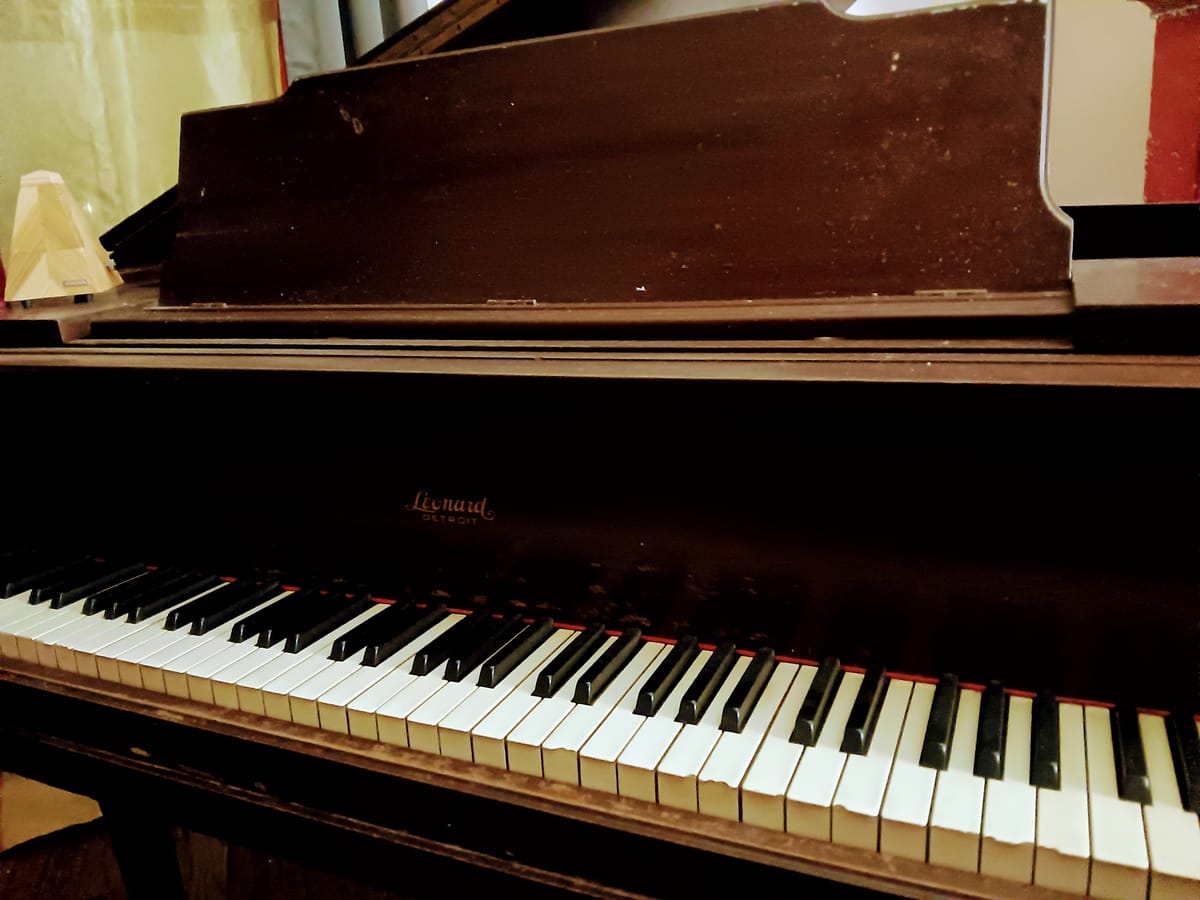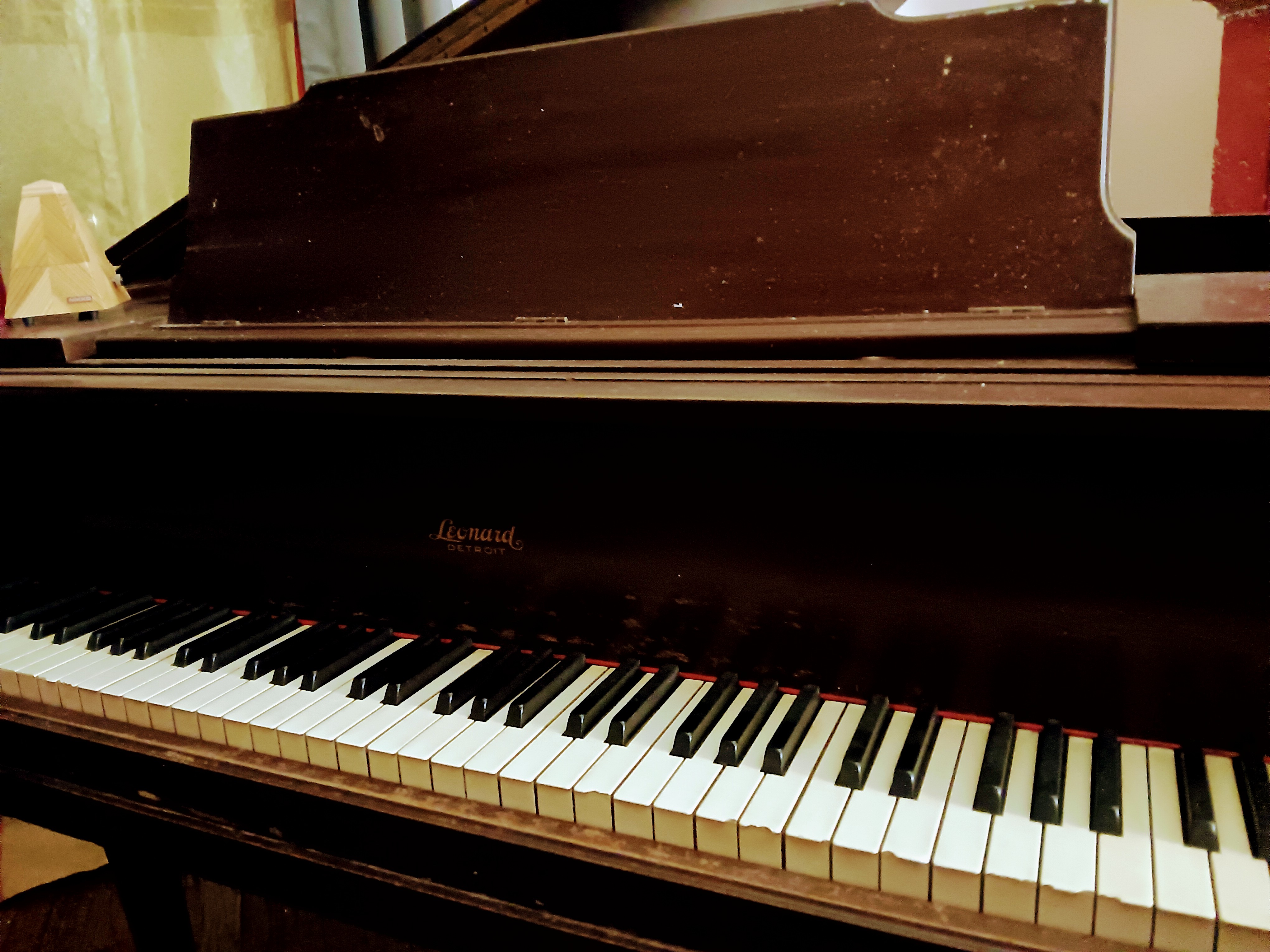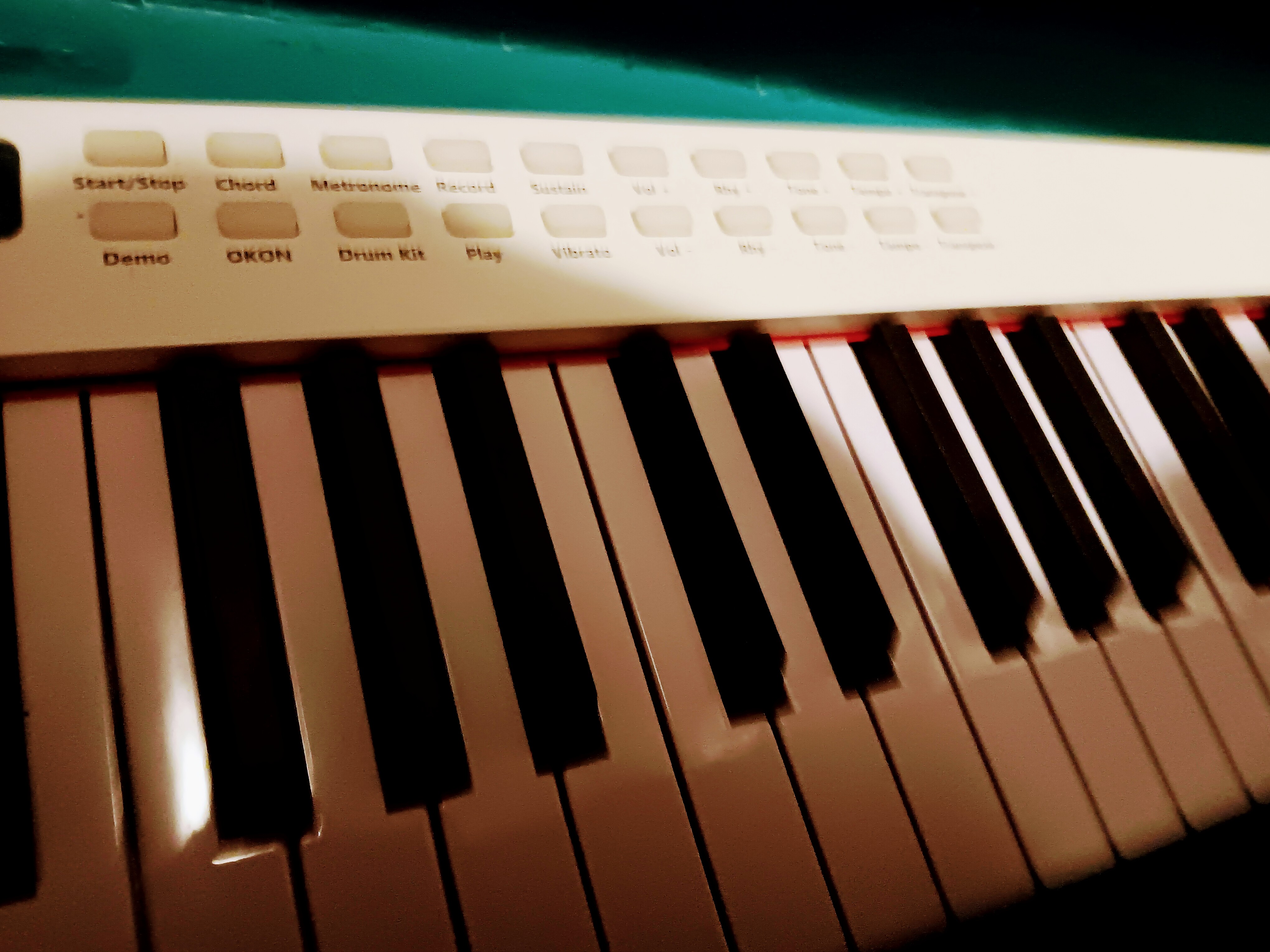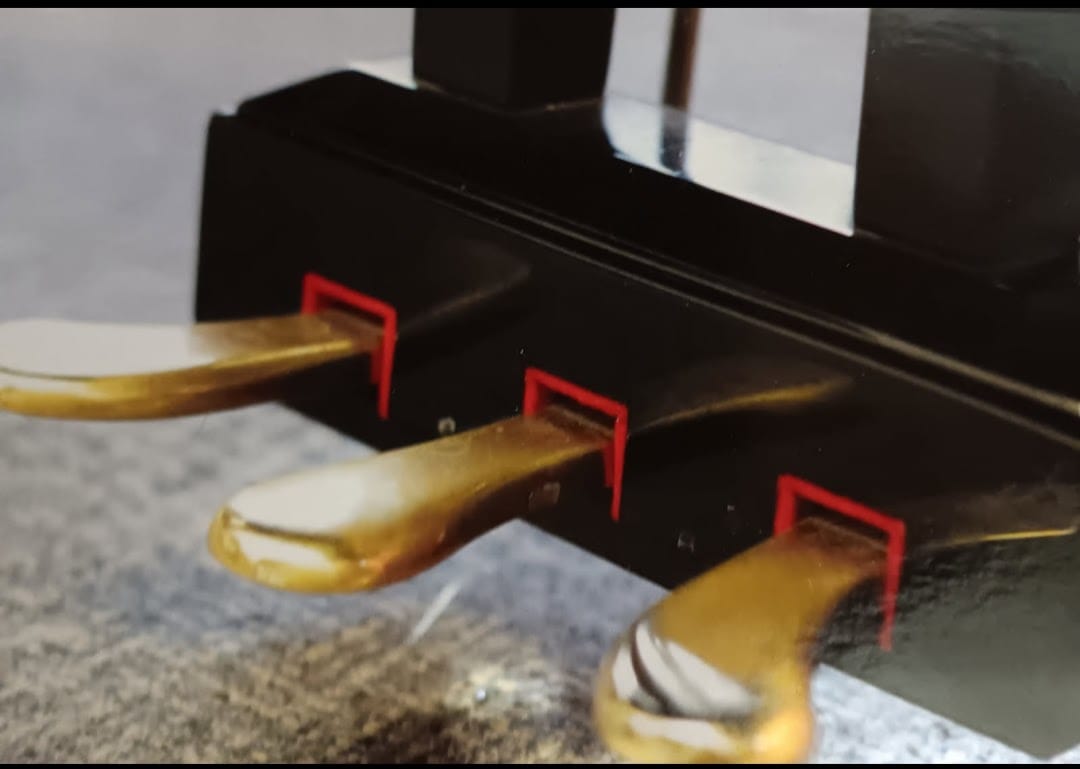$1,000 piano versus $100,000 piano
What's the difference?

My piano is a Leonard, made in 1924 at 1515 Woodward in Detroit, Michigan by the Grinnell Brothers. She (her name is Lilith)(yes, after that Lilith) is one of the few grand pianos that exists from that era.
I got her for free. It is worth substantially more than free.

And that’s what this is about—what’s the difference between a $1000 piano versus a $100,000 piano?
Well, first, I don’t know if you can get a new $1,000 piano. But for sure you can get digital keyboards for that price.
A digital keyboard is similar to a piano in that there are the same number of keys (88, unless you get a smaller one like a 67-key keyboard). Each note is going to stay in tune, so you won’t worry about the cost of tuning your instrument every year or so. And they are generally more portable than a piano.

The problem that many new students don’t yet understand is that though this gives you a low financial entry point into playing the piano, your form and technique suffer.
The reason why they suffer is that this digital instrument is not a piano. The digital keyboard, generally speaking, has recordings that give you the tone, as opposed to you generating the tone by pressing a key and manipulating hammer and strings. There are no hammers or strings in a digital keyboard.
So the way you play on the keyboard will not be the same as the way you play on a piano.
Try it yourself—the next time you go to a big box store, go to the electronics section and play one of the keyboards.
When you press a key on a keyboard hard or gently, the tone comes out exactly the same. The volume doesn’t change unless you adjust the slider, unless you’re at Sweetwater and you’re trying out a Roland or Kawai that has fully weighted keys.
On a piano, if you play a note gently, it will be a soft note. When you play a note aggressively, the sound will emerge aggressively. Your way of playing shows up on the piano.
You—the you that is You—shows up much more organically on the piano.
Not so much on lower-end keyboards unless you’ve learned how to make the adjustments.
So if you’re going to spend the $4000 or more for a keyboard that is responsive, then you might as well get a piano.
If you learn on a piano, you will do well on a keyboard because you’ll know how to adapt.
If you learn on a keyboard first, though, and try to perform on the piano, the nuances of finger pressure, posture, breathing, footwork and so on will show up in the music, and not in a flattering way.
Ok, but what about less expensive pianos versus the Faziolis of the world?
Well, higher-end pianos have higher-end materials. The body of the piano consists of hand-selected hardwoods. The bass strings are hand-wound. The keys are perfectly weighted to allow for smooth trills and ascending and descending movement. The hammers are individually and specifically designed to strike the strings in exactly the correct way every single time. It takes one year to build a Fazioli piano.
Cheaper pianos don’t hold their tune well. The action is inconsistent. If the soundboard is made out of plywood, then you’re going to have a dull sound.
And most importantly, beginner pianists will struggle more with dynamics and control because the piano itself does not yield to those subtleties.
When students ask what they should get, I almost always say get the highest-end used piano you can find and take a seasoned pianist with you to test it out once they settle on one they like.
What about free ones on Craigslist and other online marketplaces?
That's where I got mine.
When I arrived to test it out, I was startled by the great condition it was in. The mom and son wanted it out because they needed the room. When I explained the historical significance of the piano and expressed that they could get real money for this, the mom shrugged and said, “We want it to go to someone who would actually play it”.
Lilith was home in three days.
I knew the questions to ask before I arrived and I was listening for scam alerts and red flags. And I took my friend who is an excellent bullcrap detector. Normally, though, I don’t recommend listings like that because they are rife with scams.
Instead, I urge new students to try out a bunch of pianos, and a good way to do that is go to the local community college or university that has a music program. Wayne State has several practice rooms with uprights and a couple of grands, so it’s a good place to get an idea of what a person might want. This is also where I have students ask around for purchase—at the university and at music schools. Estate sales and moving companies are excellent places to get deals on higher end pianos.
We teach this.
